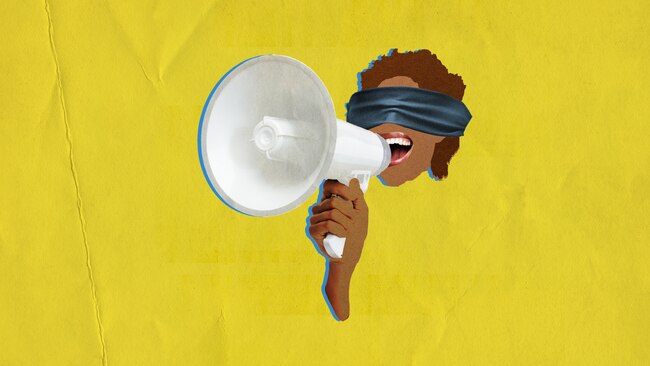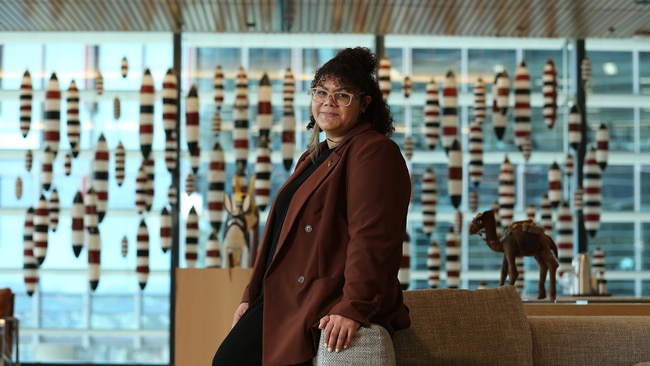We don't know what The Voice is but we want it
Many young people don't know what the Indigenous voice to Parliament is, or think it already exists, but are still willing to support it.

Many young people don't know what the Indigenous voice to Parliament is, or think it already exists, but are still willing to support it.
Young people don't know what the Indigenous Voice to Parliament is but are still willing to support it.
The Indigenous Voice to Parliament - shorthand, the Voice - would see a group of Indigenous people chosen specifically to have a say on laws, policies, and programs that affect First Nations people. The referendum question Australians will vote on in the next three years is: "Do you support an alteration to the constitution that establishes an Aboriginal and Torres Strait Islander Voice?"
Wiradjuri woman Bridget Cama said through speaking to young people at events, festivals, and conferences via the Uluru Youth Dialogue, which she co-chairs, about 50% had "heard about" the Uluru Statement and the Voice, and the other 50% are "not really sure" what it is but generally want to learn more about it.

Once it's explained to them, as "a representative body that would allow First Nations peoples to have a say over the issues that affect us", young people are generally willing to support it.
"Once you do explain it to them ... people are like 'Oh, yeah, of course. Why aren't we doing this already? Why should it have to go to a referendum? And that's a whole other conversation about the legalities around it," Ms Cama said.
The latest True Issues survey by JWS Research, taken in August, shows that despite a lack of in-depth knowledge about the Voice across all groups, the strongest support was among 18 to 34-year-olds.
Ms Cama, 27, said "Young people are quite progressive. And as young people (ourselves), we do have a lot of hope and faith in our young people to push (the Voice) through. And I think so do our elders".
She said despite this blind support, it is important to still have conversations with young people about the Voice in the lead-up to a referendum partly because they think it already exists.
"The fact that ... young people don't know that we don't have a representative voice or a body that represents us to Parliament and the executive - they think that those things already exist. So we're already breaking down those barriers through having those conversations.
"Then people start to understand why we're facing these issues and why they're not being resolved because they already think the system is addressing those things when it's not.
"A part of that truth-telling is really allowing young people to understand and give some context as to why, as a nation, we have to get this done so that we can start to heal and move forward," Ms Cama said.
Her grandfather motivates much of her advocacy work now.
He passed away when her mum was only six years old. He didn't go to school and signed documents with an "x" because he couldn't read or write. As a lighter skinned Aboriginal person, he spent his early years pottering around, "basically avoiding being taken away" by authorities. He then moved to Lithgow to work, and built a family there. Her mum would later drop out of high school at 14 years old to get a job and support her family.
Ms Cama is the first in her immediate family to get a tertiary education, studying law at the University of NSW, which she described as "a big thing for us".
"I guess that's where (my passion) really stems from as well is the hardships that came before and the fact that pop was born on the Cudgegong River outside of town (Mudgee). He grew up trying to avoid authorities just to survive," Ms Cama said.
"Obviously having a Voice and having that representation to put forward solutions around health is also something that's always in the back of my mind, because of that gap that exists. You know, the fact that (my pop) passed away when my mum was only six, he was only in his 40s."
She said the Voice allows peak community organisations, working in Indigenous health and closing the gap, to be heard.
"Why I'm so passionate about the Uluru Statement is because the elders at those dialogues really talked about what our future can look like and investing in our young people so we can really get to that point where young people can flourish no matter who they are or where they come from," Ms Cama said.
This week, The Oz spoke to a sample of young people at the University of Sydney and Pitt Street Mall to find out "if they knew what the Indigenous voice to parliament was".
Of the 18 people spoken to, one-third knew vaguely what the Indigenous voice to parliament was. After it was explained to them, 16 said they would vote "Yes" in the case of a referendum, while two people said they didn't know enough about it to say for sure.
The Oz also asked whether they saw Prime Minister Anthony Albanese promoting the Voice alongside American basketball veteran Shaquille O’Neal, which some criticised as a PR stunt.
READ MORE ON THE INDIGENOUS VOICE TO PARLIAMENT:


